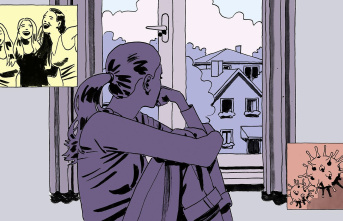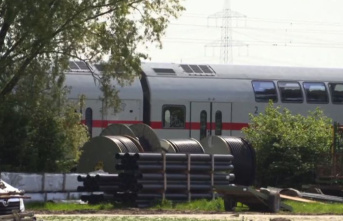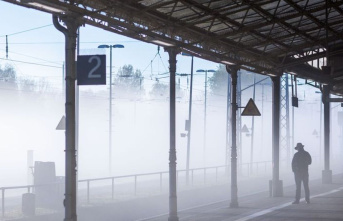The Anglo-Saxons know the nice term "star struck". This condition has nothing to do with a stroke, but it does, because it also means that you can hardly move a muscle properly, not out of weakness, but because the excitement of meeting a celebrity is so great.
Of course, journalists should never be "star struck". That forbids our self-image as cool-headed contemporaries who have already seen everything and met everyone. Nevertheless, it can mysteriously catch us, most recently me when I was sitting across from Herbert Grönemeyer with my colleague Hannes Roß. I bought my first CD from the man, I applauded him the first time I went to a concert – and one of his concerts was the last I went to, in Gelsenkirchen, at the end he sang about the currywurst.
One can say: Grönemeyer is the Federal Republic, grew up deep in the West - Bochum! – but today worried about East Germany. He is also probably the most German bard who misses the German soul with every album. Of course we wanted to know from him how Corona and Corona loneliness shaped his new songs, but it quickly became about politics. The most interesting thing is how difficult it is for Grönemeyer, who has lived in London for a long time, to deal with the Germans – and at the same time he cannot leave them alone.
He talks about ex-Chancellor Angela Merkel as if she were a riddle that he has yet to fathom. And then the singer is also a soon to be 67-year-old man who once sang about hard coal and its magic, loved the roar of combustion engines, but would now perform at demonstrations of "Fridays for Future" - and who remembers a sentence from his father : "The older I get, the better I get." Grönemeyer himself says: "I will try to give epochal kisses even at 93." Roß and I agree: Herbert somehow manages not to make such sentences sound embarrassing.
It is often said about generals that when in doubt they always fight the last war because they never learn the right lessons from the previous one. What about the money generals, central banks and regulators? The world financial crisis was around 15 years ago, it caused upheaval and fueled anger over billions in packages for gambling bankers, which populists like Donald Trump made great. Only now did the Silicon Valley Bank implode, whereupon it was said in Europe that this was not possible here. Shortly thereafter, Credit Suisse collapsed, and the fear of a new crisis is palpable. At the Silicon Valley Bank, the decline was also due to overly lax regulation, for which its boss had campaigned. And at Credit Suisse, top management had pocketed around 32 billion euros in bonuses over the past ten years, while the bank made losses of more than three billion euros. Did we learn that much?
The International Court of Justice in The Hague did it: called Vladimir Putin a war criminal and issued an arrest warrant. Theoretically, it would be conceivable that this could soon be seen on "Wanted" posters. Diplomats are skeptical that there is no negotiating way back. But, asks justice expert Ronen Steinke in the "Süddeutsche Zeitung", would we not be where we are today if we had done something similar years ago, for example after the annexation of Crimea?











